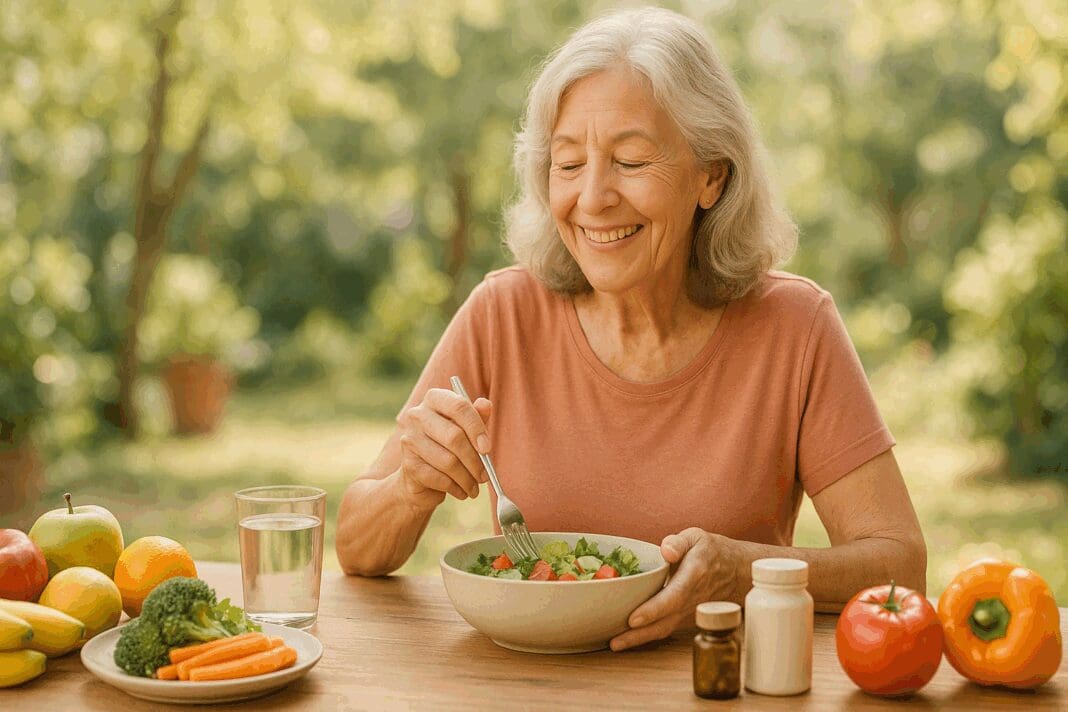As women enter their seventies, the physiological and metabolic changes that accompany aging become more pronounced, making nutrition not just important but vital to overall well-being. Essential nutritional guidelines and top vitamins for seniors over 70 every woman should know are no longer just health suggestions; they are crucial foundations for maintaining energy, cognitive function, bone strength, immune resilience, and emotional balance. This stage of life brings with it unique challenges, from a declining sense of taste and smell to a reduced ability to absorb certain nutrients. Therefore, adhering to well-informed, evidence-based dietary principles is key to thriving—not just surviving—in the later decades.
You may also like: The Ultimate Guide to Essential Vitamins for Over 40 Women
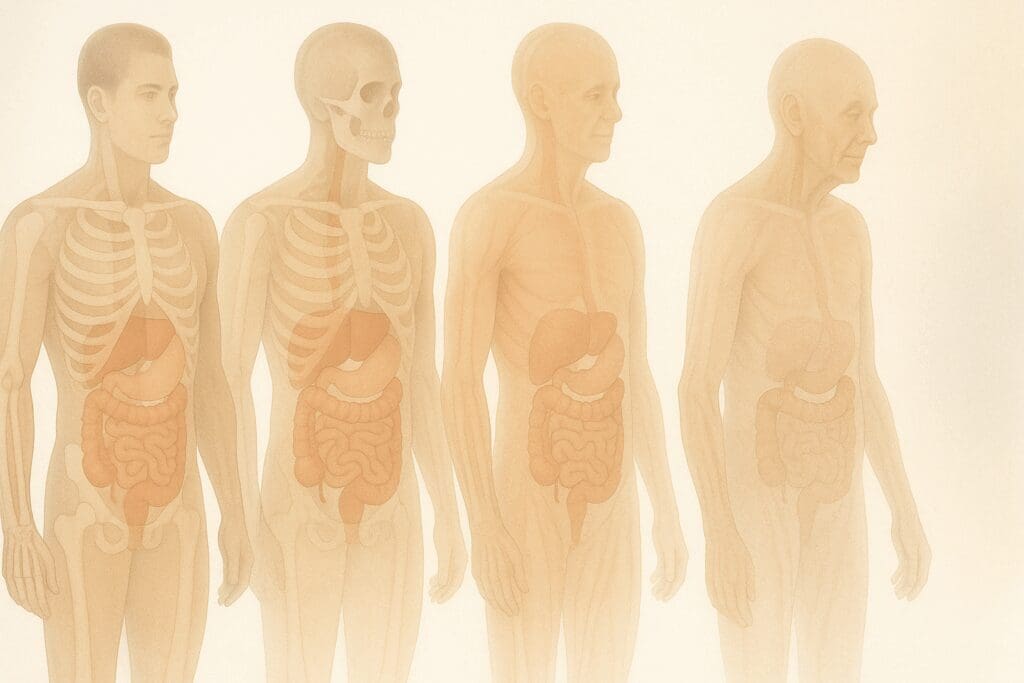
Understanding the Interplay of Aging and Nutrition
Aging introduces complex biological changes that directly impact how the body processes nutrients. Gastrointestinal motility tends to slow, leading to reduced nutrient absorption and increased risk for deficiencies. Women over seventy often experience sarcopenia, the age-related loss of muscle mass and strength, which can be accelerated by poor protein intake. Bone density also decreases, particularly after menopause, placing women at greater risk for osteoporosis and fractures. Moreover, the body’s ability to synthesize vitamin D through sun exposure diminishes, and kidney function, which plays a role in activating vitamin D, can decline with age. These physiological transformations highlight why nutritional vigilance is not optional but essential.
Cognitive decline is another area where nutrition plays a preventive and protective role. Emerging research underscores how micronutrient-rich diets—particularly those high in B-vitamins, omega-3 fatty acids, and antioxidants—can slow memory deterioration and reduce the risk of neurodegenerative diseases like Alzheimer’s. Given the importance of vitamins for seniors over 70, especially women, maintaining optimal nutrient intake is not merely about staving off deficiencies; it’s about actively enhancing quality of life.
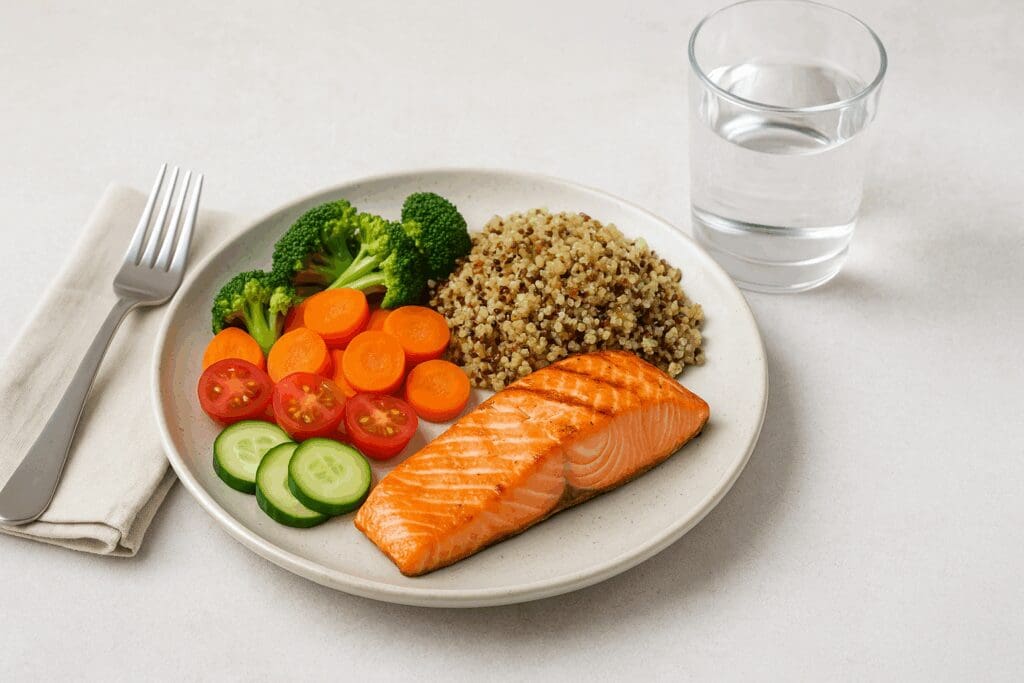
Daily Caloric and Macronutrient Needs in Older Women
Contrary to common perception, the need for calories does decrease with age due to a slower metabolic rate and reduced physical activity levels. However, the requirement for nutrients, especially micronutrients, either remains constant or increases. For women over 70, the estimated daily caloric requirement ranges between 1,600 to 2,000 calories, depending on activity level. The key lies in maximizing nutrient density within this reduced calorie allotment.
Protein needs, in particular, deserve attention. Older adults often fail to consume adequate protein, which is vital for preserving muscle mass, immune function, and wound healing. Experts recommend at least 1.0 to 1.2 grams of protein per kilogram of body weight per day for seniors. Lean meats, fish, legumes, eggs, and dairy are excellent sources. Healthy fats—especially omega-3 fatty acids from fatty fish, flaxseeds, and walnuts—should be included for cardiovascular and cognitive health. Carbohydrates should primarily come from whole grains, fruits, and vegetables to support digestive health and provide sustained energy.
Hydration: A Frequently Overlooked Cornerstone
Dehydration is one of the most underestimated threats to older adults. The sense of thirst diminishes with age, making seniors more vulnerable to chronic dehydration. This can manifest in symptoms like fatigue, confusion, dizziness, and even urinary tract infections. Women over seventy should aim to drink at least 1.7 liters (about 7 cups) of water per day, more if physically active or living in a hot climate.
Beyond plain water, hydration can come from herbal teas, broths, and water-rich foods like cucumbers, watermelon, and citrus fruits. Care should be taken to limit diuretic beverages like caffeinated coffee and alcohol, which can exacerbate fluid loss. Maintaining hydration is critical for facilitating digestion, nutrient transport, joint lubrication, and temperature regulation.
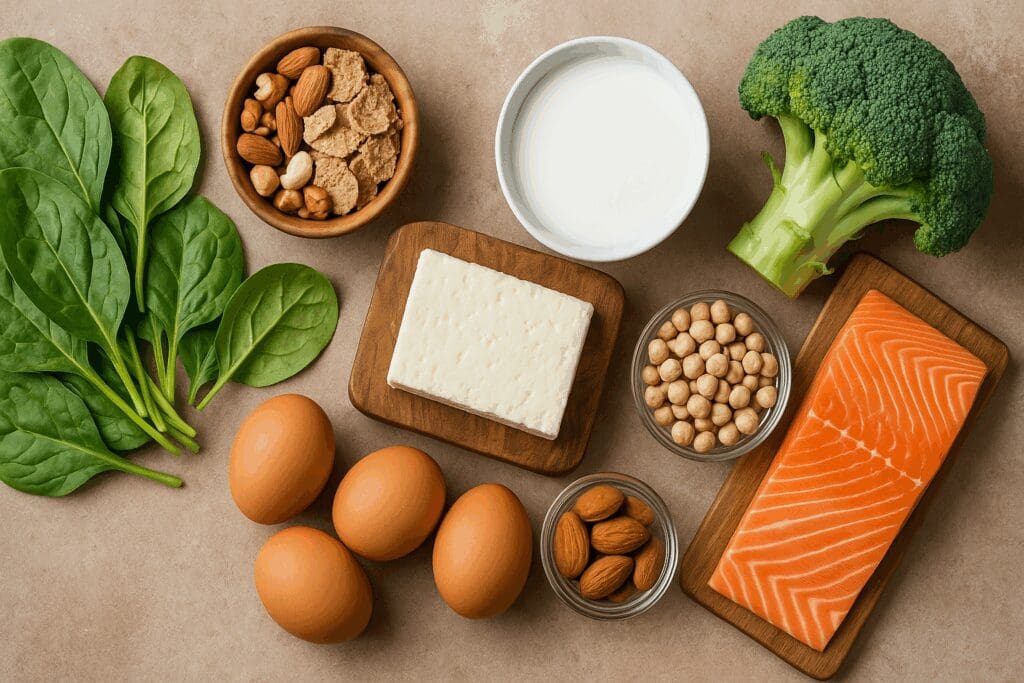
The Critical Role of Micronutrients in Senior Women’s Health
Micronutrients are pivotal in supporting the physiological functions that often decline with age. Unfortunately, many seniors fail to meet the Recommended Dietary Allowances (RDAs) for key vitamins and minerals. Calcium, vitamin D, vitamin B12, magnesium, potassium, and folate are frequently found lacking in older women’s diets, even among those who appear to eat well.
Calcium is indispensable for bone health, and postmenopausal women are especially prone to osteoporosis due to decreased estrogen levels. The RDA for calcium in women over 70 is 1,200 mg per day. Sources include low-fat dairy products, fortified plant-based milks, tofu, leafy greens, and almonds. However, dietary intake alone may not be sufficient, necessitating calcium supplementation in consultation with a healthcare provider.
Vitamin D works synergistically with calcium, enhancing its absorption and supporting immune function. Given the limited ability to synthesize vitamin D from sunlight in older age, the RDA for women over 70 is set at 800 IU per day, though some experts recommend higher doses under medical supervision. Dietary sources include fortified cereals, fatty fish, egg yolks, and liver.
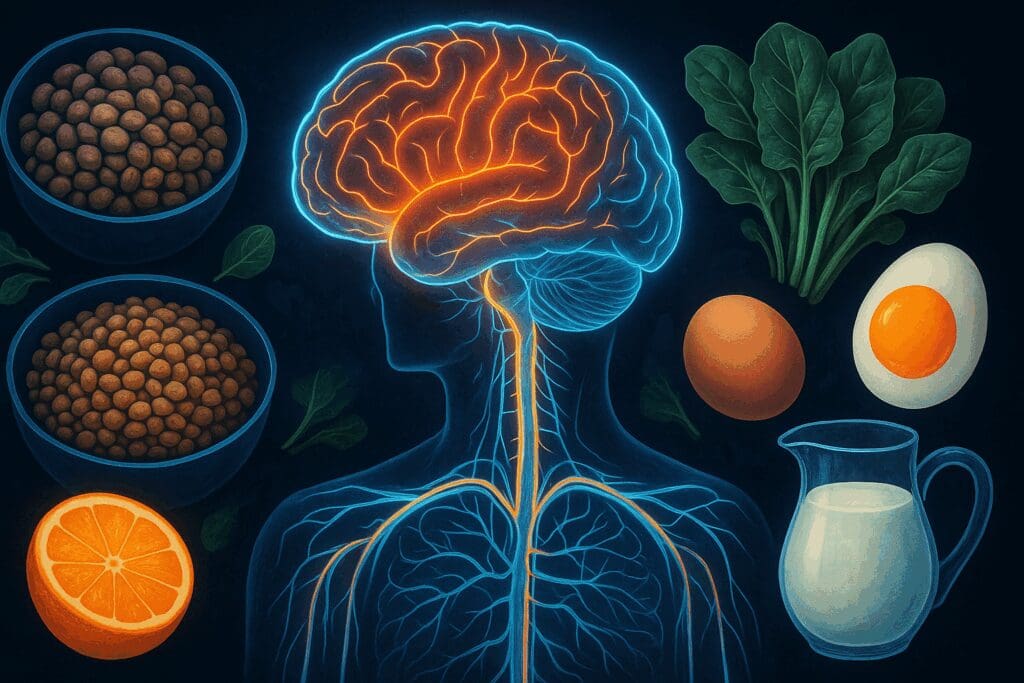
Folate and B12: Guardians of Neurological Health
B-vitamins, particularly folate and vitamin B12, are vital for DNA synthesis, red blood cell production, and neurological function. Deficiencies in these vitamins have been linked to cognitive decline, depression, and anemia. Women over 70 often experience decreased stomach acid production, which impairs the absorption of vitamin B12 from food sources such as meat, dairy, and eggs. Supplementation, either through oral tablets or injections, may be necessary.
Folate, another key nutrient, plays a role in reducing homocysteine levels—a biomarker associated with cardiovascular risk. Leafy greens, legumes, citrus fruits, and fortified grains are rich in folate, yet many seniors fall short due to limited dietary variety or reduced appetite. Including these sources regularly can help maintain both heart and brain health.
Essential Nutritional Guidelines and Top Vitamins for Seniors Over 70 Every Woman Should Know
When discussing essential nutritional guidelines and top vitamins for seniors over 70 every woman should know, it is crucial to consider the synergy between vitamins and minerals. For example, magnesium supports vitamin D metabolism and contributes to muscle and nerve function. Likewise, potassium helps regulate blood pressure and fluid balance, counteracting the hypertensive effects of excess sodium. Bananas, sweet potatoes, avocados, and beans are potassium-rich foods that should be regularly incorporated into meals.
Zinc is another unsung hero, vital for immune response, wound healing, and taste perception. Older adults often exhibit lower zinc levels due to poor dietary intake or malabsorption. Oysters, beef, pumpkin seeds, and fortified cereals are excellent dietary sources. The recommended intake for women over 70 is 8 mg per day, and a balanced diet generally meets this need unless there is an underlying medical condition.
Iron, while essential for red blood cell production, should be approached with caution. Unlike premenopausal women, seniors are more at risk for iron overload due to reduced excretion. Iron supplementation should only be undertaken with documented deficiency and under medical guidance to avoid potential organ damage.
Addressing Digestive Health Through Dietary Choices
The digestive system becomes more sensitive with age, making dietary fiber a critical nutrient for regularity and gut health. Women over 70 should aim for at least 21 grams of fiber daily. This can be achieved through whole grains, fruits with skins, vegetables, legumes, and nuts. Fiber not only alleviates constipation but also supports blood sugar regulation and cholesterol management.
Probiotics and prebiotics are increasingly recognized for their role in maintaining a healthy gut microbiome, which influences everything from digestion to immune function and mental health. Yogurt, kefir, sauerkraut, and kimchi are natural sources of probiotics, while prebiotics can be found in onions, garlic, leeks, and bananas. Together, they help cultivate a diverse and resilient microbiome that supports overall vitality.
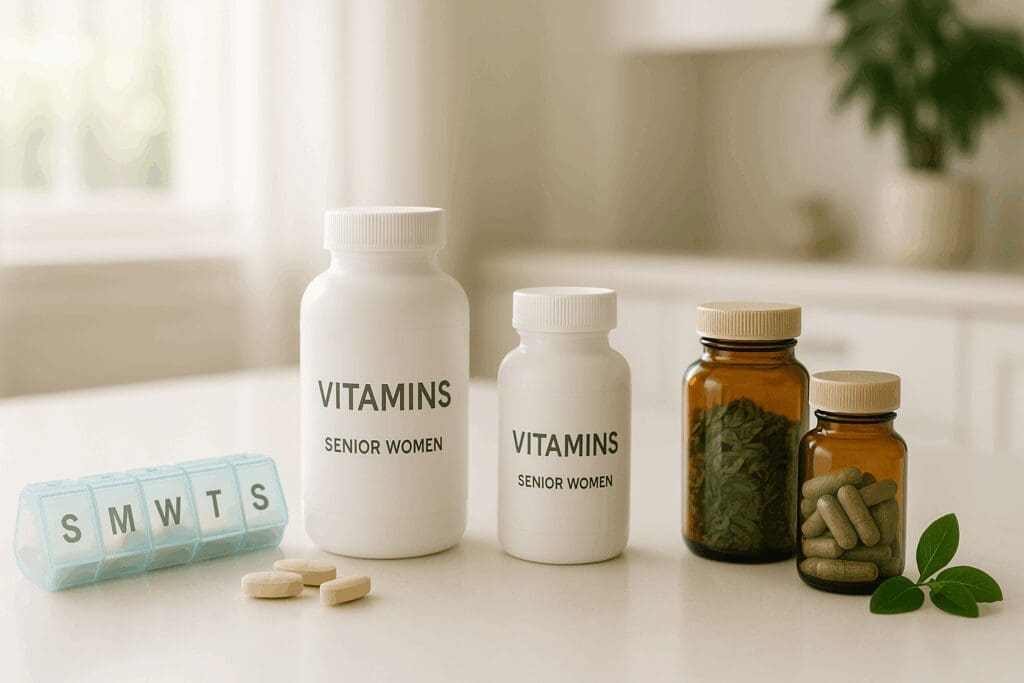
Best Practices for Supplement Selection in Older Women
Choosing the best supplement for seniors requires discernment, as the supplement industry is not tightly regulated. Seniors should prioritize third-party tested brands that ensure purity and potency. When evaluating a supplement for old woman, it is important to consider bioavailability, dosing, and compatibility with existing medications.
Multivitamins formulated for seniors can offer a convenient way to cover nutritional gaps, but they should not replace a well-balanced diet. These supplements often contain adjusted levels of vitamins A, D, E, K, and B-complex, along with essential minerals tailored to older adults’ needs. However, women should be cautious with fat-soluble vitamins, which can accumulate in the body and lead to toxicity.
Supplements for older women should also reflect individual health conditions. For instance, those with osteoporosis may require higher doses of calcium and vitamin D, while women with cardiovascular concerns may benefit from omega-3 supplements. Consulting with a healthcare provider or registered dietitian is essential to create a personalized supplement plan that enhances health outcomes without adverse effects.
Essential Nutritional Guidelines and Top Vitamins for Seniors Over 70 Every Woman Should Know: Daily Implementation Tips
Incorporating essential nutritional guidelines and top vitamins for seniors over 70 every woman should know into daily life involves more than just meal planning; it requires a shift in mindset and lifestyle habits. Creating a structured eating schedule can help combat diminished appetite, a common issue in older adults. Eating smaller, nutrient-dense meals throughout the day can prevent fatigue and improve digestion.
Meal preparation and grocery shopping can be streamlined by selecting easy-to-cook foods that are rich in nutrients. For example, canned beans, frozen vegetables, and pre-washed greens can simplify healthy eating without compromising nutritional value. It’s also wise to cook in batches and freeze portions to ensure access to nourishing meals even on low-energy days.
Social engagement around meals can improve food intake and enjoyment. Sharing meals with friends, family, or community groups reduces the risk of isolation, which is often linked to malnutrition in the elderly. Additionally, keeping a food and supplement journal can aid in tracking nutrient intake and identifying areas for improvement.
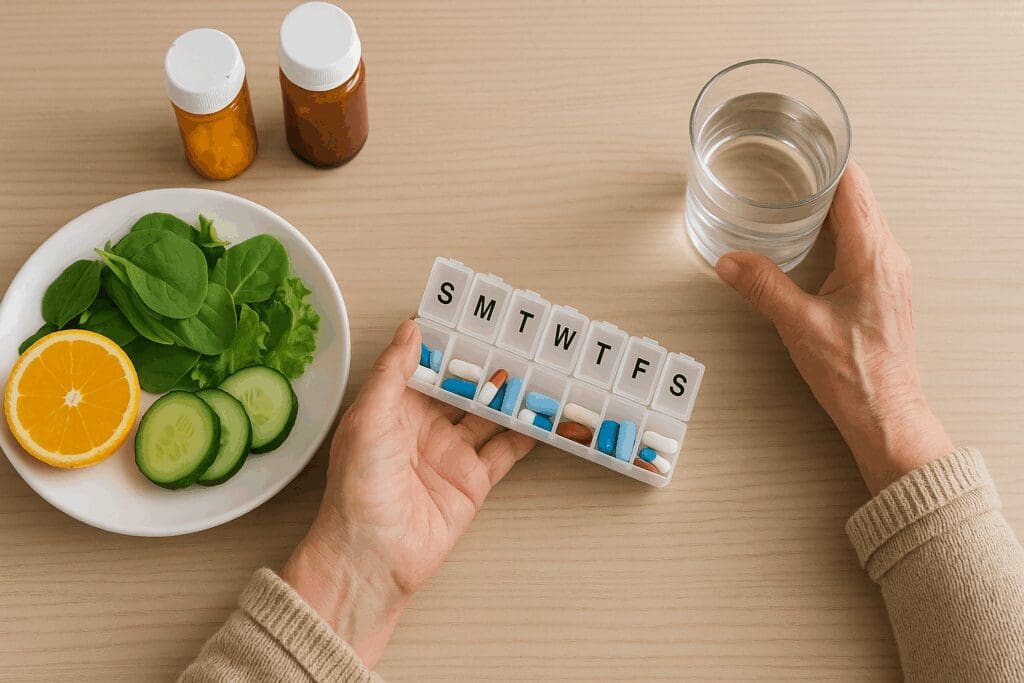
Understanding Food-Drug Interactions in Older Women
As the use of prescription medications increases with age, so too does the risk of food-drug interactions that can impair nutrient absorption or cause adverse effects. For instance, proton pump inhibitors commonly used for acid reflux can reduce magnesium and vitamin B12 absorption. Diuretics used to manage hypertension can lead to potassium and magnesium depletion. Warfarin, a blood thinner, can be influenced by vitamin K intake, necessitating dietary consistency.
It is essential that older women consult healthcare providers when initiating any new supplement regimen. Lab tests can determine baseline nutrient levels, ensuring that supplementation is targeted and effective. Pharmacists can also offer valuable insights into timing and compatibility of nutrients with medications to minimize risk.
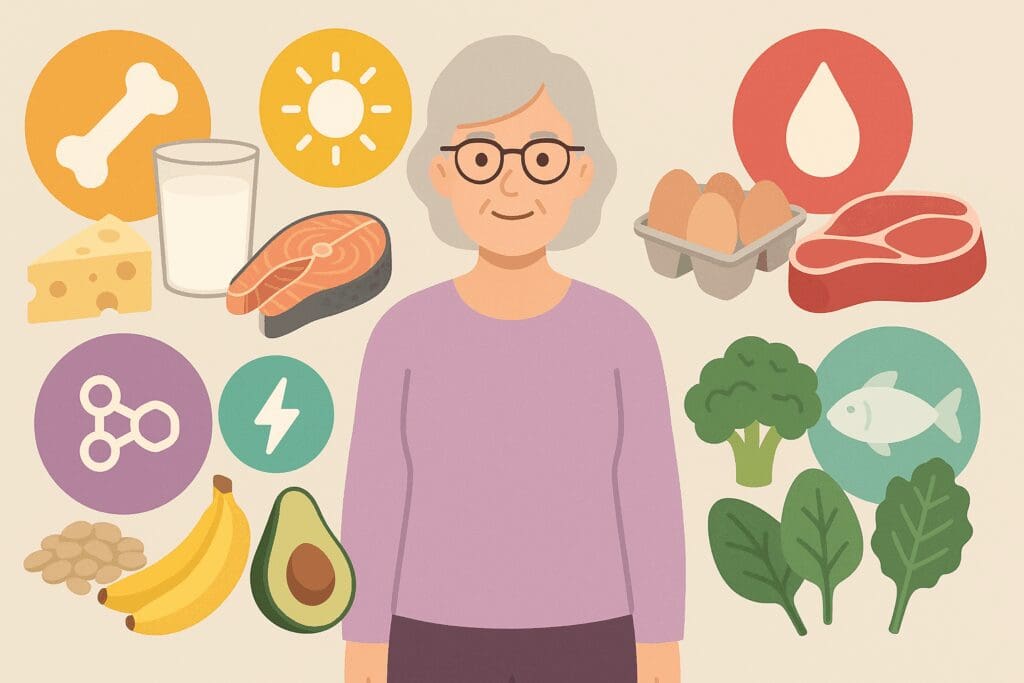
Essential Nutritional Guidelines and Top Vitamins for Seniors Over 70 Every Woman Should Know: Addressing Nutritional Gaps with Confidence
Women over 70 must navigate a unique nutritional landscape, one that demands both diligence and adaptability. Essential nutritional guidelines and top vitamins for seniors over 70 every woman should know are more than academic recommendations—they are life-enriching tools that support independence, mental clarity, and physical vitality. Identifying and addressing nutritional gaps early can prevent a cascade of health issues that diminish quality of life.
Regular checkups, blood panels, and dietary evaluations form the foundation of proactive health management. Working with a geriatric nutritionist can offer tailored strategies that align with a woman’s lifestyle, medical history, and personal preferences. When approached holistically, nutrition becomes a dynamic and empowering part of aging well.
Looking Ahead: Maintaining Longevity and Grace Through Nutrition
Nutrition in the golden years is not merely a matter of eating well—it is a strategy for living well. As women over seventy look toward maintaining independence and vitality, the importance of age vitamins, a well-planned supplement routine, and adherence to individualized dietary principles cannot be overstated. Essential vitamins for seniors over 70 are not just supportive agents; they are allies in the pursuit of a vibrant, fulfilling life.
Embracing nutritional wisdom at this stage offers women the chance to reframe aging as a time of strength, resilience, and renewed purpose. With knowledge, planning, and the right support, these years can be among the most enriching of a woman’s life.
Frequently Asked Questions: Navigating Nutritional Wellness for Senior Women
How do social factors influence the nutritional habits of women over 70?
Social factors play a powerful, often underestimated role in shaping the dietary behaviors of senior women. Loneliness, bereavement, and reduced social circles can lead to diminished appetite and irregular eating patterns. Conversely, women who maintain strong social networks often eat more balanced meals due to shared dining experiences and mutual encouragement. Access to community programs such as congregate meal sites or senior centers can also improve diet quality by providing nutrient-dense meals and companionship. Therefore, fostering social engagement is not only beneficial for emotional health but can have a significant, positive impact on nutritional consistency and variety.
Can personalized nutrition make a difference for women over 70?
Absolutely. Personalized nutrition accounts for an individual’s unique health status, genetic makeup, medication interactions, and personal preferences. For women over seventy, this approach allows for fine-tuning of micronutrient intake based on clinical markers such as bone density scans or B12 blood levels. A one-size-fits-all approach often misses crucial gaps or redundancies in nutrient intake. By customizing meal plans and supplement protocols, women can avoid the risks associated with over-supplementation and under-consumption of key vitamins for women over fifty. Collaborating with a registered dietitian familiar with geriatric care offers the safest path to optimal outcomes.
What are lesser-known signs of nutrient deficiencies in older women?
Beyond the common signs like fatigue or brittle nails, nutrient deficiencies in older women can manifest subtly. A chronic feeling of coldness may point to iron or thyroid-related issues, while frequent mouth sores might suggest a deficiency in B vitamins, particularly B2 and B12. A declining sense of smell or taste, often mistaken as a natural part of aging, could signal zinc insufficiency. Sleep disturbances can sometimes be traced back to low magnesium or calcium intake. Recognizing these less obvious cues allows for timely intervention through appropriate supplements for older women and targeted dietary changes.
How can taste changes in aging impact nutritional intake?
As taste perception declines, especially sensitivity to salt and sweetness, many women gravitate toward overly seasoned or sugary foods to compensate. This can lead to increased sodium or added sugar intake, undermining cardiovascular and metabolic health. Moreover, diminished taste can reduce the enjoyment of meals, leading to reduced caloric and nutrient consumption. To counter this, women can experiment with aromatic herbs, spices, and umami-rich ingredients like mushrooms or tomatoes to restore flavor complexity without compromising health. Maintaining variety and vibrancy in meals becomes essential for meeting the nutritional demands outlined in any age vitamins strategy.
How can caregivers support the nutritional needs of senior women?
Caregivers are instrumental in ensuring older women receive the best supplement for seniors as well as a balanced diet. Beyond meal preparation, they can observe behavioral changes that hint at nutrient deficiencies or difficulty swallowing pills. Encouraging hydration, offering assistance with grocery shopping, and creating pleasant mealtime environments can greatly enhance food intake. Additionally, caregivers can collaborate with healthcare providers to manage any food-drug interactions, especially when introducing a new supplement for old woman. Education and proactive engagement empower caregivers to become advocates for holistic nutritional well-being.
Are there any risks associated with popular supplements for older women?
Yes, while many age vitamins are beneficial, unsupervised supplementation can carry risks. For example, excess vitamin A has been linked to bone fragility in postmenopausal women, while high doses of iron may increase oxidative stress if not medically indicated. Herbal supplements, often taken for joint or memory support, can interfere with blood thinners or blood pressure medications. It’s also worth noting that fat-soluble vitamins (A, D, E, and K) can accumulate in the body, unlike water-soluble ones, raising the risk of toxicity. Seniors should always seek professional guidance before adopting new supplements for older women into their regimen.
How can digestive changes affect vitamin absorption in women over 70?
With age, the digestive tract undergoes changes that can impair nutrient absorption, even when intake appears sufficient. Reduced stomach acid levels can hinder the breakdown of food and limit the absorption of critical nutrients like calcium, magnesium, and vitamin B12. Conditions such as atrophic gastritis or long-term use of antacids further exacerbate this issue. Enzyme production from the pancreas may also decline, affecting fat-soluble vitamin absorption. These digestive shifts underscore the importance of choosing bioavailable versions of vitamins for seniors over 70 and possibly using sublingual or liquid forms when gastrointestinal function is compromised.
What role do psychological factors play in nutritional decline among older women?
Psychological factors such as depression, anxiety, or cognitive decline can significantly disrupt eating habits. Depression, in particular, may lead to loss of appetite or interest in food, resulting in insufficient intake of even basic age vitamins. Cognitive impairments can cause forgetfulness about meals or confusion over cooking procedures, increasing the risk of malnutrition. Furthermore, psychological distress often reduces motivation to maintain consistent supplementation or attend medical appointments. Early mental health intervention and support systems are critical in sustaining nutritional balance and encouraging regular intake of vitamins for women over fifty.
Essential Guidance for Vitamins for Seniors Over 70 and Medication Safety
Many seniors take multiple medications daily, increasing the likelihood of nutrient-drug interactions that compromise the efficacy or absorption of vitamins. For instance, statins may deplete Coenzyme Q10, while metformin can reduce B12 levels over time. Even over-the-counter medications such as antacids or NSAIDs can influence mineral balance. Women must maintain a comprehensive list of all medications and share it with their healthcare provider when evaluating their need for vitamins for seniors over 70. Creating a safe and effective supplement schedule around meal times can further minimize potential risks and maximize benefit.
Navigating Lifestyle Choices and the Best Supplement for Seniors
Lifestyle habits such as smoking, alcohol intake, and sedentary behavior profoundly impact the effectiveness of nutritional interventions. Smoking impairs vitamin C absorption, while alcohol can interfere with the metabolism of B vitamins and magnesium. Inactive lifestyles may reduce appetite, which in turn limits nutrient intake and the efficacy of the best supplement for seniors. Encouraging light activity, like walking or yoga, not only stimulates appetite but also improves nutrient transport and metabolic efficiency. By aligning supplements for older women with a health-conscious lifestyle, their benefits become more substantial and sustainable.
A Lasting Legacy of Health: Embracing the Full Power of Nutritional Wellness in Aging
The journey through aging is uniquely personal, but the foundational role of nutrition is universal. By embracing essential nutritional guidelines and top vitamins for seniors over 70 every woman should know, each woman is equipped to live these years with greater energy, clarity, and peace. In a world that too often equates aging with decline, the right nutrition stands as a powerful counter-narrative—one that champions vitality, strength, and joy.
To make the most of this powerful chapter, women should regularly revisit their nutritional plans and stay informed about evolving scientific recommendations. Nutritional needs do not remain static; they change with lifestyle, health status, and even season. Staying proactive, asking questions, and remaining curious can ensure that the golden years are truly golden, marked by robust health and an enduring sense of purpose. In honoring the body’s evolving needs, every woman can write a health legacy that inspires generations to come.
Further Reading:
Healthy Aging Supplements & Vitamins
The 16 Vitamins and Minerals You Need as an Older Adult — and How to Get Them

